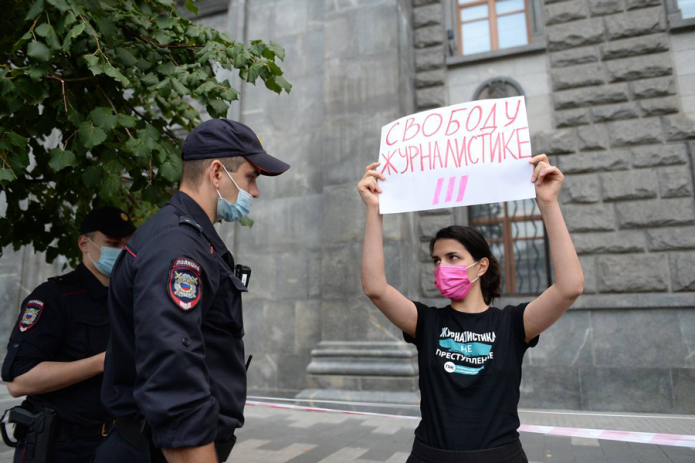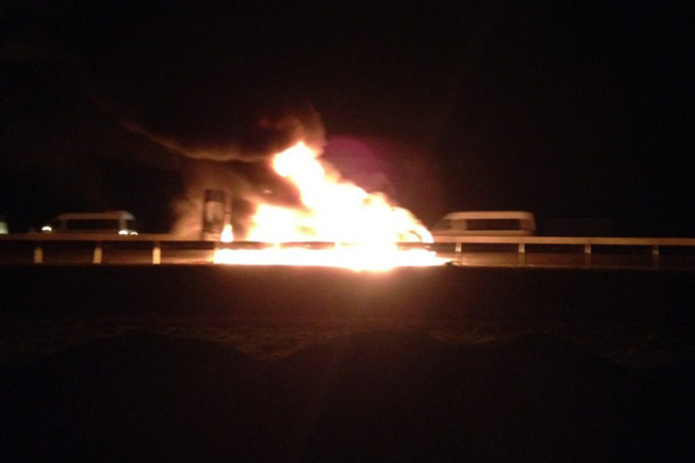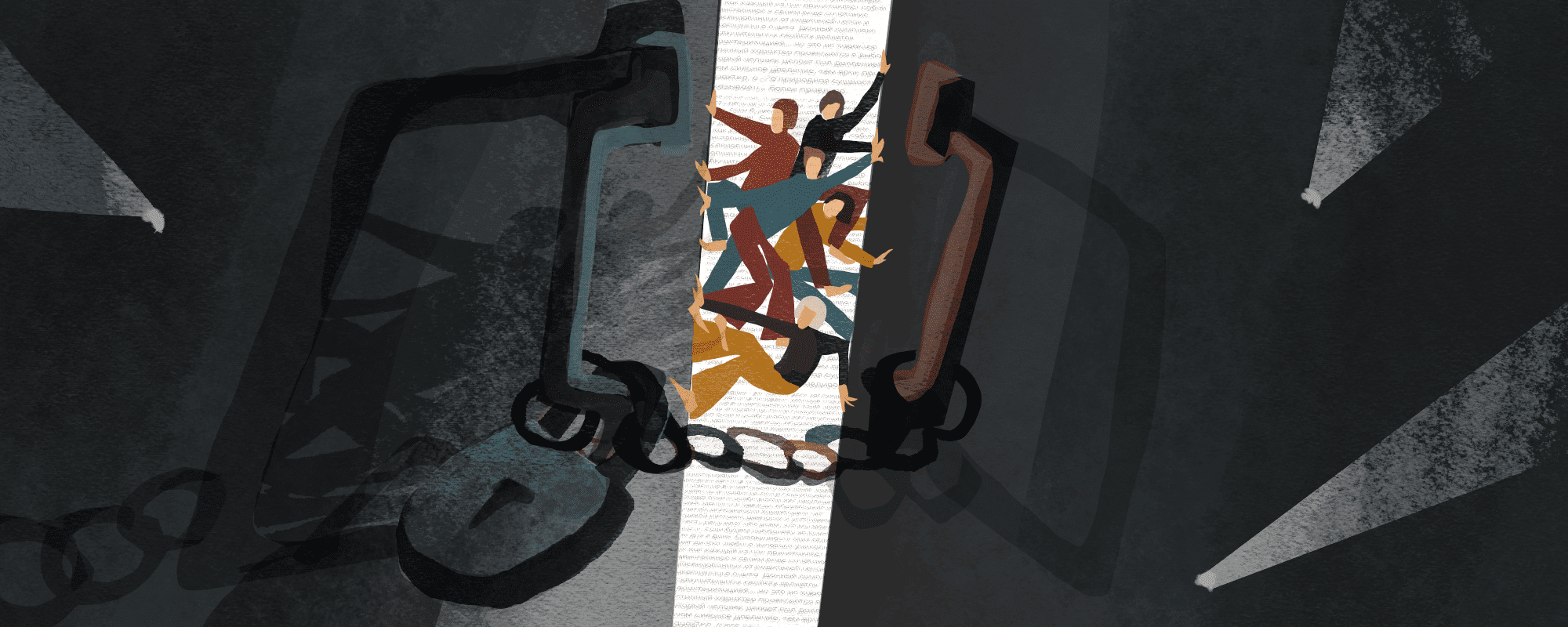On July 12, it was reported that the Moscow Prosecutor’s Office requested the city court of Moscow to liquidate the Journalists' and Media Workers' Union and suspend its activity until the end of the proceedings.
The organization has been under pressure since mid-May when the Prosecutor’s Office began an inspection of «compliance with the requirements of the law on non-governmental organizations, trade unions, and information», and the co-chairman of the union Sofia Rusova was summoned to the Prosecutor’s Office for a three-hour «conversation». There, she was questioned about the organization’s funding.
«I think their goal was to find some funds that would let them deem us „a foreign agent“, but since we don’t have any funding as such — we never had any grants and the organization has always existed on member’s subscriptions — they decided to go the way of liquidation», Rusova says.
The lawsuit says that the members of the union have repeatedly committed «actions aimed at injuring the social order, public safety, the society, and the state.»
«Reading that the organization you are a member of is injuring the state is difficult emotionally», Rusova notes. «It is really sad as some of our members can’t leave the country and will continue working in Russia. And the state basically takes away their ability to legally unite.»
«They piled up everything they could come up with»
The union’s representatives saw the case materials for the first time only on July 13, during preliminary hearings. The prosecution was primarily concerned with the publications containing materials «discrediting» the Russian army (Article 20.3.3 of the Administrative Offences Code). The lawsuit does not specify which ones are these.
«The lawsuit features quite a lot of screenshots of articles from the organization’s website, however, it doesn’t explain their evidentiary value», says the lawyer Maxim Krupskiy, representing the interests of the Journalists' and Media Workers' Union in court. «Only a small part of them is about Ukraine, most are about specific cases of specific journalists and media outlets, for example, Svetlana Prokopyeva or ‘Pskovskaya Gubernia’».
The lawsuit also states that the union is charged with discrediting the Russian army (part 1 Article 20.3.3) because the organization’s website featured «misinformation about the ongoing special military operation aimed at protecting DPR and LPR, with the goal of discrediting the use of the Armed forces of the Russian Federation.»
According to Krupskiy, another allegation concerned the publication of «deliberately false information about the special operation» on the Pskovskaya Gubernia website. «The thing is, according to the lawsuit, the editor-in-chief of Pskovskaya Gubernia is Denis Kamaliagin, who is, in turn, a member of the union. From this, the lawsuit concludes that these publications have something to do with the union. In such a curious manner the activity of the union is tied to the activity of a completely autonomous legal entity and to publications that were not made by the union itself. It raises very serious questions about the logic of the lawsuit.»
The Prosecutor’s Office also mentioned events in support of journalists — Svetlana Prokopyeva and Ivan Safronov, who is charged with high treason (Article 275 of the Criminal Code).

«This is also worded quite vaguely: the union organized public events in support of journalists without coordination with the officials», Krupskiy explains. «So basically the union was doing its job as intended — protecting the rights of journalists under criminal prosecution, and this is brought up against it as an offense».
Besides, the Prosecutor’s Office was displeased with fundraising in support of Meduza and OVD-Info — as the attorney says, in brackets, it stated that both projects are labeled «foreign agents». Again, there are no details in the lawsuit about how much money was raised or how it was done.
Finally, there is a mention that the union charter contradicts the law and that some members were not paying their subscription. The charter is published on the union’s website, and the lawsuit did not specify what part of it contradicted the law. At the same time, in 2017, the organization was officially registered in the Ministry of Justice.
«As to the subscription payments, first of all, this argument is factually incorrect, ” notes Krupskiy „But even if it was, to liquidate an organization just because some of its members have not paid their subscription is simply impossible.“
Vague wording and rather strange logic of arguments are, according to the attorney, the distinguishing features of this lawsuit as a whole. «One gets the impression that they just piled up everything that they came up with, everything they could somehow use. But all this has little to do with any legal grounds for liquidation», adds the lawyer.
Labor disputes and public campaigns
The Journalists' and Media Workers' Union was created in 2016 after an attack on a bus carrying Russian and foreign journalists, as well as human rights advocates from the «Anti-Torture Committee», which happened on the border between Chechnya and Ingushetia. Thereafter, the union became a member of the European Federation of Journalists (EFJ) and initially represented Russian media workers alongside the pro-government Russian Union of Journalists. However, in 2021, the latter left the European association, and the former became the only representative of the Russian media community on the international stage.
According to the co-chairperson of the union, Sofia Rusova, it was then that the organization was first put under pressure. «There were no direct threats from the officials, but I remember how very surprised they were during our meetings with them that an organization like ours can even exist in Russia. They were used to journalists just writing what they are told to write, so our union seemed alien to them.»
At present, the union has about 600 active members. They work in federal and regional media. Some of them work in independent outlets, some in state-affiliated ones. There are two chairpeople in the union: Sofia Rusova and Igor Yasin, a freelance journalist and LGBT activist.

The union’s most successful case was that of Dozhd TV channel employee Alyona Korolyova, who sought the union’s help in 2021. She was dissatisfied with her salary and working hours. Korolyova had accepted the position of a broadcast transcriber for 25 thousand rubles a month and had worked for three and a half years. The workload steadily grew, but not the salary — Dozhd’s management refused to meet Alyona halfway. With the union’s interference, negotiations in consultation with a lawyer were launched. Korolyova began receiving bonus payments and her working hours were normalized.
«When it comes to labor rights, our problem is that people in Russia don’t really believe that they can somehow protect their rights, so it’s not often they even try», says Igor Yasin. «Moreover, their understanding is that a union lawyer will simply come and help fix the problem. When the conflict is not too serious, it often does work like that. This, however, does not increase the awareness about one’s labor rights much. This applies not only to journalists from the so-called liberal media, but, I suppose, to people of all professions.»
Apart from protecting labor rights, the union organized discussions and seminars on various professional topics, including copyright issues and workplace harassment. It also helped journalists in critical situations, for example, when some of them were heavily fined, or when all of their electronic devices were confiscated during search or detention. The union helped to find an attorney and protect their interests in court and also organized public campaigns. Among the most famous cases are the campaign against the deportation of Ali Feruz, a journalist at Novaya Gazeta, to Uzbekistan; the rallies in support of journalist Ivan Golunov, and the gathering of signatures in support of Svetlana Prokopyeva, a journalist from Pskov.
«I think [the pressure against the union] is connected with our work in general», Yasin notes. «We now exist in such circumstances where anything that is still alive is being destroyed.»
Rusova agrees. She says the pressure on journalists has increased in recent years. The lawsuit on the liquidation of the union that protected their rights is, in that respect, a part of a larger trend.
«All independent journalists faced pressure, especially those who were members of the union, ” Rusova says. „It was mass arrests, getting beaten at protest rallies, getting their electronic devices damaged, and criminal prosecution. We registered all these abuses of the journalists’ rights. In addition, during this year, many of our colleagues have been labeled foreign agents. More than 15 members of our union now have this status“.
Karina Merkuryeva



